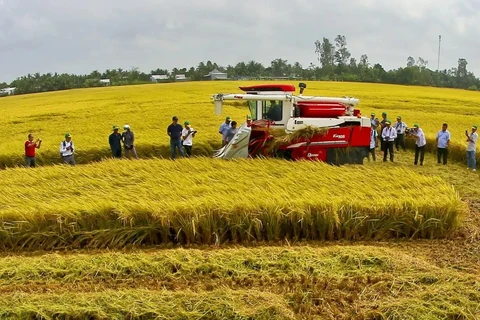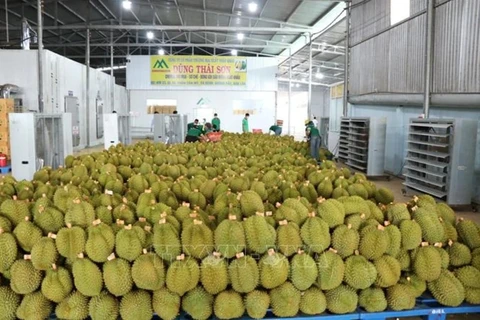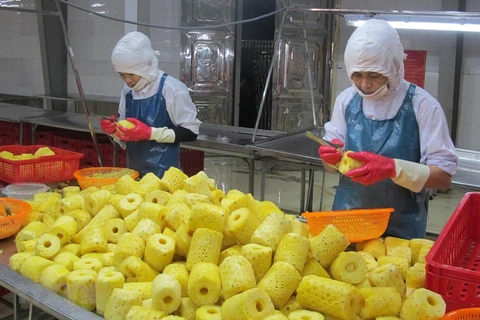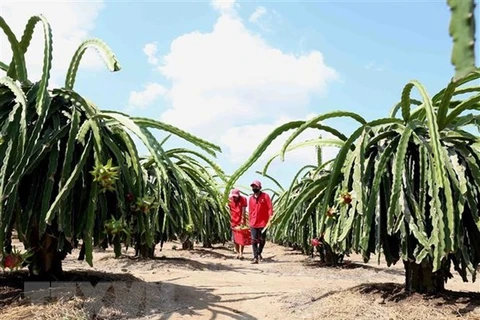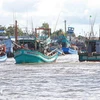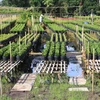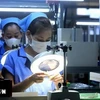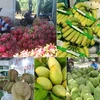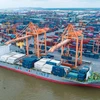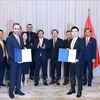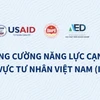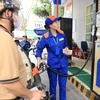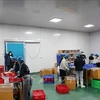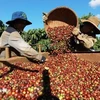Hanoi (VNA) - The European Union (EU) has increased warnings related to sanitary and phytosanitary (SPS) measures, leading to stricter border inspections for certain Vietnamese agricultural products entering the EU market.

The global import network is increasingly adopting stricter food safety and animal and plant health measures for agricultural and seafood products. This trend requires domestic producers to stay updated and compliant with stringent market regulations.
This issue was emphasized at a conference on sanitary and phytosanitary (SPS) measures under the European Union–Vietnam Free Trade Agreement (EVFTA) and Regional Comprehensive Economic Partnership (RCEP) agreements, co-organized by the Vietnam SPS Office, Vietnam Agriculture Newspaper, and the Ho Chi Minh City Food Safety Department in Ho Chi Minh City on August 2.
Deputy Director of the Vietnam SPS Office, Ngo Xuan Nam, reported a concerning rise in warnings from the European Union in the first half of the year. Vietnam received 57 warnings during this period, a sharp increase from 31 warnings in the same timeframe in 2023—an over 80% surge.
“The spike in EU warnings has led to more frequent border inspections of Vietnamese agricultural products. Currently, four agricultural products are under strict scrutiny: dragon fruit (30%), chili (50%), okra (50%), and durian (10%). This trend could continue unless timely solutions are implemented,” Nam noted.
He attributed the increase in warnings to non-compliance by some exporters with the specific regulations of importing countries, particularly concerning the varying Maximum Residue Limits (MRLs) for different substances. Some producers have not followed proper guidelines on the use of pesticides, antibiotics, and fertilizers.
Inspection and supervision issues also contribute to the rise in warnings. According to Nam, certification of plant area codes and packaging facilities is insufficient. For instance, 52% of planting areas and 47% of packaging facilities for durian are not monitored.
While the EU reviews and updates its enhanced measures, supplementary inspections, and import management every six months, Vietnam’s feedback on draft SPS measures remains limited, with only a few localities providing timely and complete responses.
Hoang Thi Lien, Chairwoman of the Vietnam Pepper and Spice Association, highlighted three major challenges the spice sector faces when exporting to Europe: pesticide residues, microorganisms, and heavy metals. She emphasized the need for businesses to stay informed about SPS requirements from the EU and to learn from the warnings issued to similar competing products from other countries.

Lien also called for better coordination between regulatory agencies, businesses, and industry associations to address issues such as returned shipments and SPS-related challenges. The Vietnam SPS Office serves as a central hub for providing the necessary information to ensure exports meet food safety and quarantine regulations.
Vietnam’s participation in the World Trade Organization (WTO) and free trade agreements (FTAs) like the EVFTA and RCEP has created a more level and expansive playing field with major partners in East Asia and Europe.
These agreements offer significant tax advantages, particularly the reduction of tariffs to 0% for both fresh and processed agricultural products, creating favorable opportunities for Vietnamese businesses, especially those investing in deeply processed agricultural food products.
The Vietnam SPS Office remains committed to providing comprehensive information on quarantine and plant protection to help businesses meet the requirements of new-generation FTAs, including RCEP and EVFTA./.
